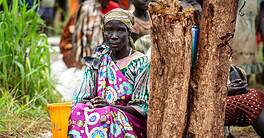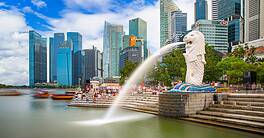Colombian airline Avianca, Latin America’s second-largest in both fleet size and revenue, has been flying through some turbulence. Airbus recently claimed Avianca executives demanded kickbacks, and major shareholder German Efromovich says he’s close to winning a bitter lawsuit against lender United Airlines and shareholder Kingsland Holdings for ousting him as chairman. CEO Anko van der Werff and CFO Adrian Neuhauser tell Global Finance about raising money and finding smoother skies.
GF: Avianca launched a four-pronged, “Avianca 2021” strategy last summer to boost operations, fleet efficiency and operating profits. What are the three key achievements so far?
Anko van der Werff: The plan is moving forward and has shown favorable results. We renegotiated our short-term debt, including our [$550 million] bond exchange offer, in which we got an 88% participation. We also negotiated better financial terms with our key suppliers. We secured new [investments] from our stakeholders, a $250 million loan from United Airlines and Kingsland Holdings. We got $125 million of additional financing [from the Citadel investment fund]. We improved punctuality, with on-time performance over 80%. We signed new Brazilian codeshare agreements with Azul and GOL. We launched Branded Fares to allow passengers to tailor travel to pay just for what they want.
GF: What are the remaining challenges?
Van der Werff: Throughout 2020, we will continue executing our plan based on financial sustainability, customer engagement and operational excellence. We will strengthen our financial position, lower our debt and improve our profitability to guarantee the next 100 years. We will enhance our Bogotá and San Salvador hubs, because of their favorable geographic location and human and technical resources. We will also roll out Branded Fares internationally.
GF: Latin America’s airline industry is growing and ripe for consolidation. What are your market share growth and M&A targets?
Van der Werff: Latin America’s industry is showing exponential growth, despite the challenging political and economic landscape. Proof is the 5% growth we experienced last year. The industry’s growth should be accompanied by government and industry actions to foster development. For example, regional taxes are too high, accounting for 40% of a ticket in Colombia. Simultaneously, we see it crucial to invest in airport infrastructure and have a concessions model in line with airlines, governments and customers. Avianca continues to bet on the market, recently adding capacity to US destinations and announcing new routes from Bogotá to Porto Alegre, Montevideo and Asunción and soon to Toronto. Regarding M&A acquisitions, our focus is another, to strengthen our JBA [joint business agreement] with United and Copa Airlines.
Adrian Neuhauser: We don’t like to look at growth in market share terms. We aim to be a relevant player in the routes we serve. The industry will grow in line with Latin America’s economy, 2% to 3%. We expect to grow above that, perhaps at 4% to 5%.
GF: Your $550 million bond swap offered holders a higher interest rate (9% rather 8.375%) for later redemption (2023 vs 2020). Was it hard to persuade them? How did you do it?
Neuhauser: We told them, “Look, United Airlines and Kingsland are going to give us money, which shows they believe in us.” We had technical discussions about how we were going to make our $5 billion debt serviceable and sustainable. We explained how our transformation plan would achieve operating savings and boost profitability, which we expect to hit double-digit rates this year. It was hard to convince 150 guys to defer payments. One of the guys who was against [the swap], became a good friend.
GF: European authorities have accused Avianca of demanding kickbacks for Airbus’ sale of 100 A320neo aircraft. You hired a law firm to investigate. How else are you addressing corruption?
Van der Werff: We don’t have additional comments, as the investigation just began. Airbus’ disclosure contains deeply concerning information regarding alleged actions by an individual at Avianca in the period prior to March 2016. Our current management team strongly rejects any conduct that does not reflect integrity and transparency in business in general, and in particular towards Avianca.
GF: Avianca just turned 100 years old. It is the second-oldest surviving airline—after KLM—and was first in Latin America to operate the 747 jumbo. When you look at the next century, how will you innovate?
Van der Werff: The evolution of our airline will be amazing, reflected in a modern fleet operation, our network’s strength and our increasingly personalized offer through our Branded Fares scheme and Wi-Fi connectivity. We operate to more than 70 destinations in America and Europe with one of the youngest fleets (7.1 years average). We already have Wi-Fi on 17 airplanes including two 787s. The service is currently offered on our international routes across the Americas and from November 2019, on some flights to and from Europe.



